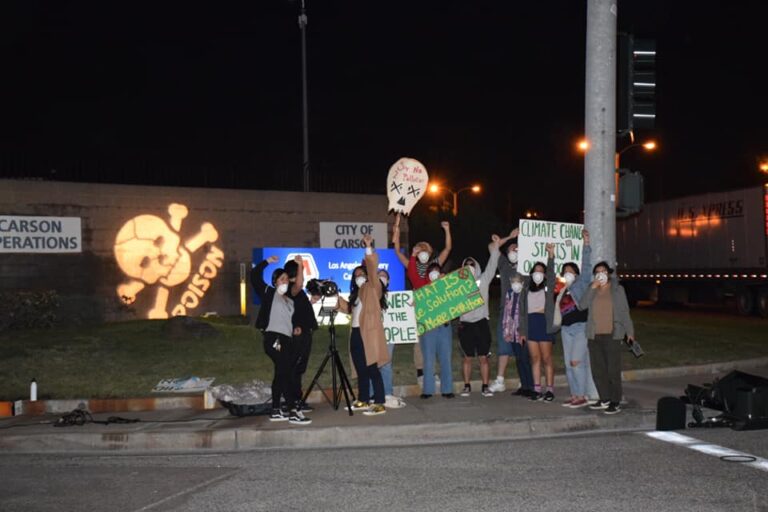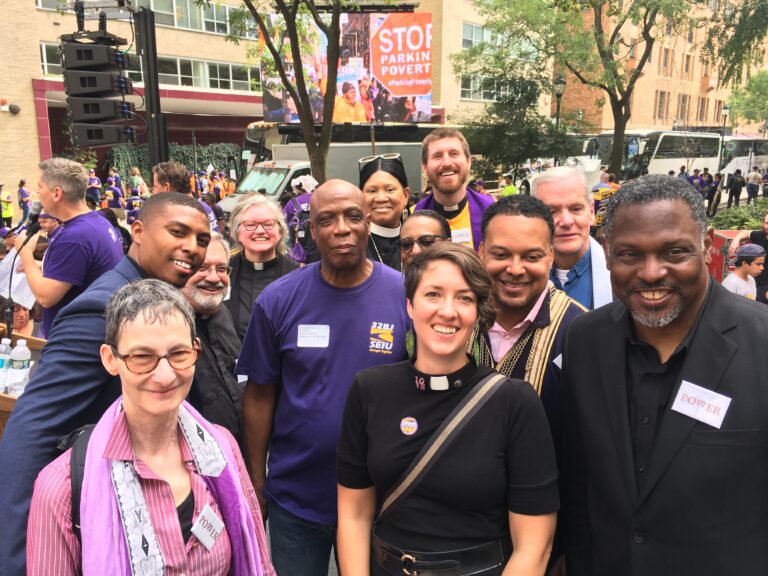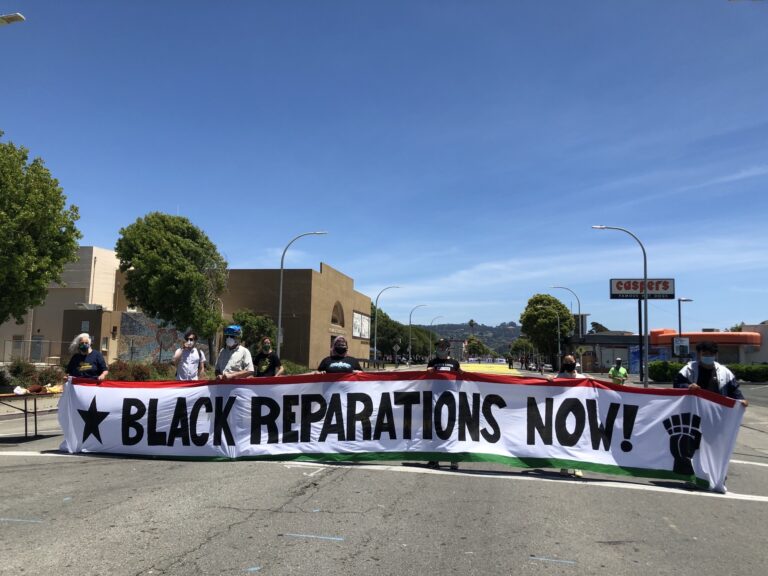STORIES FROM THE FRONTLINES
LONG BEACH, CA

East Yard Communities for Environmental Justice
Diego Mayen
Long Beach, CA
“The people in my community work hard to live a good life but with industries such as oilrefineries polluting our air makes it difficult. Many community residents over the yearsdevelop health issues, such as respiratory illnesses, because of the air they breathe dueto the close proximity to the oil refineries. Growing up near these facilities, there wouldbe days at school where the air was so bad that we had to stay indoors. There wereother days where my classmates would get headaches due to some strange smellscoming from the refineries and the oil facilities.”
Studies have shown that these nearby oil refineries release volatile organic compounds, including carcinogens, as well as nitrogen oxide and fine particles, which have been linked to blood cancers, heart disease and asthma. Phillip 66 has been cited repeatedly with violations of air pollution caused by leaks at its refineries, flooding the surrounding communities with toxic emissions linked to acute and chronic health conditions. Diego believes that the poor air quality and air pollution-related underlying health conditions make his community more susceptible to severe illness and higher rates of death from COVID-19.
Diego is committed to continue fighting until his community has healthy and breathable air. “This is a basic right. My community has shown itself to be one that is incredibly resilient and one that will continue fighting and advocating for clean air for many generations to come.”
PHILADELPHIA, PA

POWER
Philadelphia, PA
Philadelphia is a city of neighborhoods with tremendous religious, ethnic, racial and cultural diversity and a history of inspiring liberation struggles. Unfortunately, it is also a city of extreme inequality where 27% of people live in poverty and 12% live in deep poverty. The forces that shape this poverty – the loss of good union jobs, disinvestment in public education, over policing and mass incarceration and the expansion of toxic emissions – impact Black and Brown people the most severely. The same communities most impacted by fossil fuel infrastructure are also being hit hardest by COVID. The relentless expansion of fossil fuel infrastructure in Philly both exposes residents to toxic emissions and also prevents our work force from entering a green economy of good-paying, sustainable jobs. As our public and private utilities (Philadelphia Gas Works and PECO) refuse to plan for a green transition, they are blocking the Great Turning toward an energy economy that could support healthy communities.
We are part of dynamic campaigns around intersectional justice issues in Philly. We’re trying to stop the proposed SEPTA fossil fuel plant in Nicetown, and opposed the “gift” of a liquid and natural gas plant to PGW (we lost this battle, but did succeed in winning a city-council funded study of a green transition for PGW). PhillyThrive, our ally, organizes the most impacted people in the footprint of the Philadelphia Energy Solutions refinery in the Right to Breathe campaign. This campaign has been enormously effective; the refinery is now permanently closed and there is a new owner. The goal now is to carefully monitor the new owner, Hilco, and to participate in envisioning green economy uses for the land. We work with our faith-based partners the Earth Quaker Action team (EQAT) in the Power Local Green Jobs campaign calling on PECO to commit to raise its purchasing of local solar power from less than one percent per year to 20% of the energy PECO buys, bringing good paying jobs to where they are needed the most. We are contesting for our energy future in the public sphere: at City Council committees, in Public Utility Commission hearings, through creative direct actions and through the courts.
We can’t breathe! We want an end to racist violence, toxic violence and pandemic violence. We want to breathe; we want all people to breathe; we want democracy to breathe. We want the planet to breathe. Amen.
RICHMOND, CA

Communities for a Better Environment
Miguel Diaz-Mejia
Richmond, CA
“There are lot of workers who live in Richmond, [Chevron] exposesthem to harmful chemicals and pollutants. Now with COVID, on top ofwildfires, it’s really heavy on the community. There are a lot ofessential workers here – so people have to go out to work, which isdangerous because they could contract COVID and expose their familyto COVID.”
In 2014, Chevron Richmond Refinery was fined by the San Francisco Bay Area Air Quality Management District for a $278,000 civil penalty covering 27 violations occurring between 2011 and 2013. In 2012, due to technical and management failures, a massive fire broke out at the facility that led to a cloud of toxic smoke spreading over Richmond, prompting 15,000 residents to seek medical treatment. In 2013, the Division of Occupational Safety and Health issued 25 citations accompanied by a $963,200 fine against Chevron in connection to the disastrous fire at the Richmond Refinery. Investigators found willful violations in Chevron’s response before, during, and after the fire.
Miguel believes the fines are not enough, asserting these payments “don’t take back all the harm they [Chevron] did to the community all these years and this doesn’t address the problem – they’re still violating guidelines.” Miguel and his colleagues at CBE are calling for a transition of the Chevron site to uses that will keep his community safe, provide good paying jobs, and address other local needs, such as a solar panel field, grocery store, and community garden. “A lot of people who go to college [in Richmond] want to move to a better place afterwards but I want to make Richmond the better neighborhood instead of just leaving,” said Miguel.